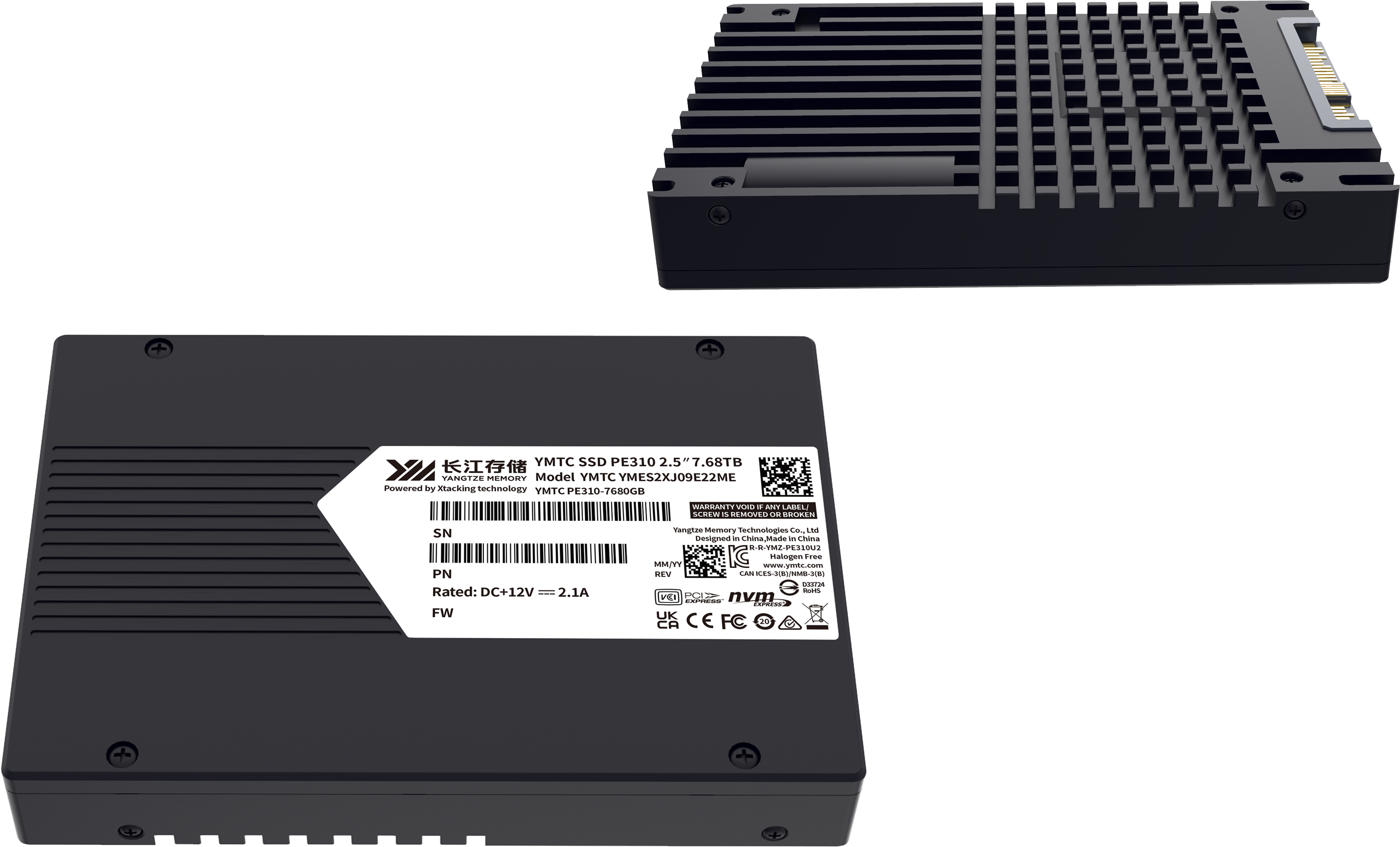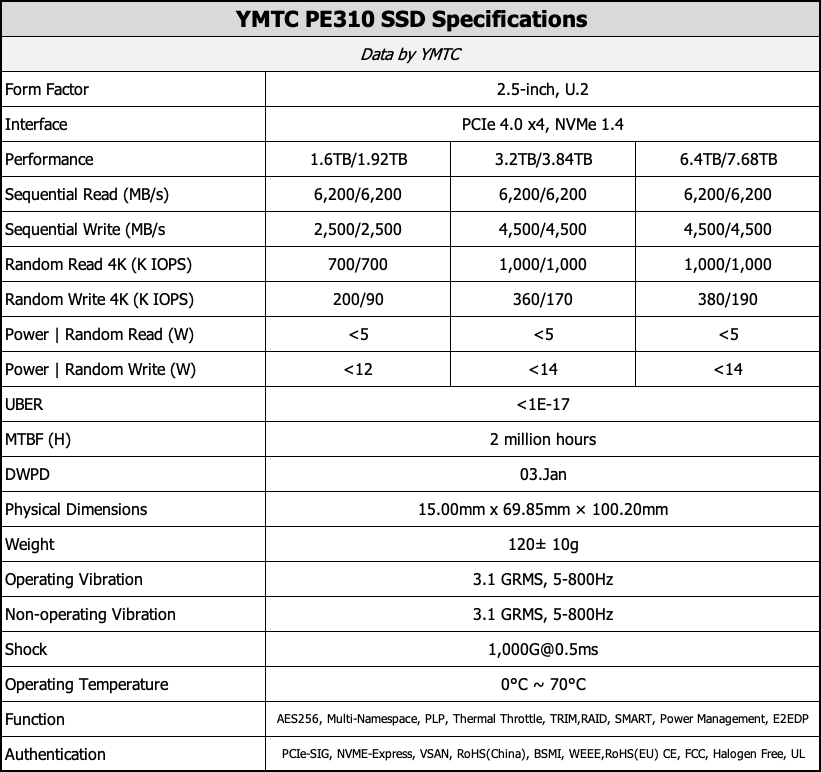China Chipmaker YMTC Ships Xtacking 2.0 SSDs, Up to 6.2 GBps
YMTC launches its first U.2 SSDs for datacenters.
Just like other makers of commodity 3D NAND, Yangtze Memory has been evolving from a manufacturer of flash memory into a vertically integrated producer of solid-state storage solutions. The company started with simplistic SATA SSDs roughly two years ago, then evolved to more advanced PCIe drives, and now it is time for YMTC to enter the most lucrative 3D NAND market — enterprise storage.
YMTC's first enterprise-grade product is the PE310 SSD that comes in a 2.5-inch U.2 form factor featuring a PCIe 4.0 x4 interface, using 3D TLC NAND memory, and offering storage capacities of up to 6.4TB for drives aimed at mixed workloads and designed for up to three drive writes per day (DWPD) as well as up to 7.68TB for drives targeted at read-intensive workloads and designed for up to 1 DWPD.
Regarding performance, the drives offer up to 6.2 GBps sequential read speed, up to 4.5 GBps sequential write speed, up to 1 million read IOPS, and up to 380K/190K (mixed workloads/read-intensive workloads) write IOPS. Since Phison's PE310 are enterprise-grade products, stated performance numbers represent sustained, not peak, performance. While the drives are very fast, since they are enterprise-oriented, we will not include them in our list of the best SSDs available today.
Yangtze Memory's 3D TLC NAND memory used for PE310 drives features Xtacking 2.0 architecture. It, therefore, supports a maximum interface data transfer speed of up to 1,600 MT/s, which is in line with what the latest 3D NAND ICs from makers like Samsung and SK Hynix offer.
YMTC does not disclose which controller it uses for its PE310-series products, just like it did not a few months ago. The only thing Yangtze Memory says is that controllers of its PE310-series drive feature LDPC ECC, are compliant with an NVMe protocol, and support AES-256 encryption. In addition, the drives support such functions as power loss protection, advanced eight-level power management, end-to-end data protection (E2EDP), thermal throttle, and so on.

Considering that YMTC intentionally does not disclose almost anything about PE310's controller, including the supported NVMe version or branding of LDPC-based signal processing and ECC technology, the company either ultimately does not want to reveal the off-controller it uses (in 2020, the company teamed up with Phison for client SSDs, but it does not automatically matter that it uses chips from the said vendor on the PE310), uses a highly-customized version of an off-the-shelf controller that has little to do with the initial chip, or uses an in-house developed controller.
Developing an enterprise-grade solid-state drive is complicated as YMTC has to guarantee ultimate reliability, very high endurance, consistent performance, and predictable power consumption under high loads. However, as it turns out, the company has managed to do this. As a result, it will now compete against solutions from other vertically integrated SSD solutions providers, such as Kioxia, Micron, Samsung, and Western Digital.
Get Tom's Hardware's best news and in-depth reviews, straight to your inbox.

Anton Shilov is a contributing writer at Tom’s Hardware. Over the past couple of decades, he has covered everything from CPUs and GPUs to supercomputers and from modern process technologies and latest fab tools to high-tech industry trends.
